„I don’t believe the way they believe. I don’t live the way they live.
I don’t love the way they love.”
(Marguerite Yourcenar)
Quite predictably, „My Name Is Damjan” („Ime mi je Damjan”), the novel published in 2001, sparked much debate and even fierce controversy, as its Slovenian author, Suzana Tratnik, was already known as a supporter of the sexual minorities’ rights; consequently, after its publication, it made headlines in the cultural press in Ljubljana for some time. However, the novel gained exponential attention and the debates it engendered took a new turn in 2014, when it was included into one of the reading support projects in Slovenia, upon which it was republished (with a Preface by Roman Kuhar) and distributed for free to numerous high-school students in this country. And if some exegetes or literary critics regarded it as a book courageously tackling the problems and turmoil specific to adolescence, others unhesitatingly asserted that it would make an inappropriate read for the young generation or that it exclusively addressed an unrepresentative minority.
Largely the story of Damjan, the teenage protagonist born a girl and named Vesna who, on growing up starts feeling a boy and identifying as such, taking, at the age of seventeen, the name Damjan and living as a boy in a woman’s body, this novel undoubtedly speaks about the much-debated gender identity (and about its fluidity) but it also goes beyond it to address issues recurrent in fiction since the beginning of Modernism: the difficult quest for self-knowledge, the complicated inter-human relations and communication (between family members and in society), the way in which loneliness can be overcome. And love too. Perhaps primarily love, as long as Damjan’s fear, his innermost conviction, is that he does not know how to love because he has never felt loved. And, obviously, he has never been understood for what he is. But what is Damjan like? More exactly, who and what is he? A boy, a girl, a transvestite, a member of a sexual minority? Because, to a large extent, this was where the shockwave that this book produced in the Slovenian cultural space and beyond, came from.
Nevertheless, those who declared themselves shocked or even outraged by certain aspects of „My Name Is Damjan” ignored – intentionally or not – the great models Suzana Tratnik resorted to or, one way or another, alluded to throughout the text. Firstly, perhaps, Viginia Woolf’s „Orlando”, the novel that questioned, as early as 1928, in an ironic and ludic manner, all the clichés on identity as they were understood in the early decades of the twentieth century. Secondly, much of the fiction work of Marguerite Yourcenar, who made the drama of the ever dual, hidden or double consciousness one of her focal concerns. As Emmanuel Lévinas stipulated, one’s identity does not consist in always being like one/self and letting oneself be identified from the exterior, by the others, but in being the same – namely being oneself, being capable of identifying oneself from the interior. Precisely for this reason, Yourcenar’s work seemed the perfect pretext for critics to speak about the emergence of a form of fiction “acknowledging the loss of identity”, as all the elements previously considered stable were beginning to lose consistency. Regarded as a trendsetter in European fiction, especially with respect to her approach to issues previously avoided or considered taboo, Marguerite Yourcenar broke up the traditional narrative formula, but also erased the dividing lines at the level of the identity of the character-narrator, verging, at times, on the very deconstruction of the narration or even on what Paul Ricoeur called “the crisis of its closure.”
Almost half a century later, Suzana Tratnik does not, in fact, do anything different. And neither does she avail herself of fundamentally different means. It is just that she sometimes uses an intentionally shocking language, a more often than not colloquial style, precisely for her message to be all the more striking. Because Damjan, the protagonist of this novel, acting as he does and reacting as he does, brings the reader closer to all the great problems that his entire generation faces – from lack of self-confidence to uncertainty about his social status or about the way he will (or could) be perceived by the ones around him. In fact, by refusing to accept his sexually assigned feminine identity, by choosing another name and by assuming a male status, Damjan is on a quest to find himself, trying, at the same time, to discover the meaning of the world he lives in as well as the pathway towards truth: towards the profound truth of his self, that truth which he will eventually find the courage to assert in front of everybody. What is noteworthy is the fact that the Slovenian writer is by no means the first to have taken this approach. And much less the only one. Suffice to mention, in order to underline how lasting such literary concerns have been, some famous examples, one of which dates back to Classical Antiquity. Book IX of Ovid’s „Metamorphoses” tells, among other tales of amazing transformations, the story of Iphis and Ianthe. Born to a family that wished for a boy but having been born, to her mother’s disappointment, a girl, Iphis’s life is spared only thanks to her mother’s promise to raise her as a boy, and it is a boy that all the ones around her will take her for. But when Iphis meets Ianthe and they fall in love things seem hopeless; however, for all to end well, the goddess Isis transforms Iphis into the man of Ianthe’s dreams. Centuries later, the story of the intimacy between two persons of the same sex was centrepiece in a contemporary novel by Ali Smith, „Girl Meets Boy: The Myth of Iphis”, published in 2007; the French writer Emmanuelle Pagano brought to the forefront a female protagonist who decided to become a boy in „Les Adolescents troglodytes”/ „One Day I’ll Tell You Everything” (2007), while the British writer Jeanette Winterson imposed her variegated narrative experiments as early as 1989, in „Sexing the Cherry”.
Suzana Tratnik’s novel is divided into ten chapters, each starting with a passage in which Vlado, the coordinator of the psychological support group whose meetings Damjan attends upon his parents’ request (in order to revert to “normalcy”, as they put it), utters his opinions about the unusual protagonist of this novel. Entirely familiar with the psychology of teenagers and able to adapt her stylistic devices to the challenges posed by this age with regard to feelings and identity, Suzana Tratnik manages to keep the readers engaged from beginning to end. And, obviously, she also succeeds in challenging every social convention possible. Damjan does not get along with his parents or with his sister and brother (the latter currently living in Germany), but has a group of friends in which Roky stands out, as he, much like the protagonist, is trying to find an identity. Eventually, unable to keep leading a false life in a family whose members do not understand, respect or, more importantly, accept him for what he is, Damjan will break all ties with them, unable to deal with the pressure exerted upon him.
Also conceived as a painful confession, a first-person (gradual and fragmented) account of the incidents and events constitutive of a troubled existence, the novel keeps the readers in suspense, unravelling only in the second part of the text who Damjan – the narrator who was born a girl and became, by choice, a boy – really is. All the members of his family are ashamed of him; neither are the members of the psychological support group very helpful nor does the psychologist he sees at one time manage to help him understand or accept himself, advising him, on the contrary, to forget his past and focus only on the future. However, it was precisely in the past that one of the events triggering Damjan’s crisis, namely the constant physical and emotional abuse his father subjected him to, occurred. This extremely important detail is disclosed during certain tense dialogues and the text also alludes to a possible past sexual abuse (Damjan’s dream) which his mother – often though concerned, but nevertheless always passive – had either been unaware of or had chosen to ignore and pass over in silence. What is certain is that the father had always been excessively close to “little Vesna”, “that Vesna of ours”, whom he clearly preferred over his other two children. At the same time, the father has always cared more about the talk of the town – acquaintances, relatives and neighbours – than about settling real issues, much less about engaging in a genuine dialogue with Damjan. And Damjan will refuse, from one point onwards, to conform and to accept to be humiliated and considered abnormal, a shameful exception in a family only interested in being regarded by the others as a quiet, ordinary one and finding it at hand to blame Damjan alone for everything that is happening, even more, for everything that has ever happened between the four walls of their house. This is the context in which the ever-troubled protagonist of this book makes friends with Nela, who encourages him and senses his artistic talent and sensibility; but this relationship will also break up eventually – once again, because of Damjan’s incapacity to fit into any pattern of behaviour, be it sexual or otherwise. For Damjan is always driven by his desire, which in time becomes an urge, to be accepted for what he is and as he is, without being forced, even by his loved ones, to adhere to an arbitrary standard which he would not fit anyway.
*
Regarded as one of the iconic voices of contemporary Slovenian fiction, with several books already translated into several languages, Suzana Tratnik, born in 1963 at Murska Sobota, studied Sociology in Ljubljana and subsequently specialized in Anthropology and Gender Studies. She made an early debut as fiction writer, essayist and translator from the English (having translated into Slovenian texts by Truman Capote, Ian McEwan and Adrienne Rich) and her books were highly acclaimed and rewarded with prestigious literary prizes in her native country (including the Prešeren Award, which she received in 2007). Based on her novel „Ime mi je Damjan”, she wrote the script for the homonymous play, which was staged in Ljubljana in 2002 under the direction of Alen Jelen, with Neva Jana Flajs as leading actress.
Often criticized by exegetes for the extensive use (or abuse) of colloquial terms or slang, the present book nevertheless provides a picture – one not devoid of excesses, indeed – of the teenagers’ world, with all the quests and torments and with all the fears that come with their – and in fact with any – age. Therefore, the novel is a story about the differences that make each and every one of us what we are; and it teaches us, should we accept them as part of normalcy, that precisely those things that differentiate us will also bring us closer in our most important moments. Or, as the novelist put it at the very beginning of her text, “Each of us differs from the others by a certain something”. Despite their initial surprise or shock, many readers (young but not only) will identify with this utterly restless protagonist of Suzana Tratnik’s novel and will thus read in him their own fears, desires or pursuits. For everyday life resembles a lot what Damjan experiences; it is, sadly, strewn with rejection or hasty appraisals coming from those in the habit of only judging others; it is tough and it often lacks moments of tranquillity. And the world around will promise so much and will so often end up offering nothing in return. Hence the protagonist’s desire to love and be loved, hence his unwavering belief that love could change everything and make the world a better place. And hence too, his inadequacy to society, to his environment and, more often than not, to himself. His resolve to disobey, to assert his identity and to fight in order to be acknowledged and accepted for what he is also validates, by the pathos of this character, his belief in the very idea of freedom (of choice, of action, of expression) and his determination to hold on to his ideals.
“The novel is a story about the differences that make each and every one of us what we are; and it teaches us, should we accept them as part of normalcy, that precisely those things that differentiate us will also bring us closer in our most important moments. Or, as the novelist put it at the very beginning of her text, “Each of us differs from the others by a certain something”. Despite their initial surprise, many readers (young but not only) will identify with this utterly restless protagonist of Suzana Tratnik’s novel and will thus read in him their own fears, desires or pursuits.
What is also noteworthy is the fact that the novelist highlighted several essential aspects of her book in the very title, for Damjan, this masculine name, defines Vesna (as she herself admits) referring to herself as ‘he’. The ambiguity of one’s identity thus gradually permeates the text, only to become one of its recurrent motifs and one of Suzana Tratnik’s central narrative concerns. Moreover, the narration is not linear and does not respect chronology, so that Damjan recounts certain events based on the importance they acquired in the past or during his evolution, rather than in relation to a particular timeline – which gradually loses relevance anyway, as the novel often makes use of the stream-of-consciousness or the interior monologue techniques. Damjan himself obsessively evokes certain moments, recounts them, reinterprets them. And even if he seems vague or incoherent, the character in fact only tries to better understand them, to grasp their innermost significance. And, obviously, he tries to fully understand himself. For this reason, his discourse, which seems at times to get out of control, is counterbalanced by Vlado’s short interventions, placed at the beginning of every chapter and aimed at providing a synopsis of the events and an objective perspective on the narration. This further underscores Suzana Tratnik’s belief in the fluidity of subjectivity, as the narrative voice relates directly to what it recounts, losing, in the process, part of the necessary clarity of the discourse. Because all the things that truly matter are narrated by Damjan and are perceived through his eyes and from his perspective: first and foremost, his relation with his family and friends (his father, his mother, his siblings, Nela).
Interestingly, in these relations, all of which are of utmost importance in order to fully understand the significance of Damjan’s stories, the protagonist perceives himself as an outsider in relation to those around him and to his environment, trying, even if unconsciously, to annihilate precisely what he feels might threaten his inner self or put his identity under question. Of course, this attitude generates the protagonist’s deep anguish about his father’s past abuse and about his family’s prejudiced attitude at present. In fact, Damjan’s family always tends to make this unusual member feel guilty, simply because otherwise they themselves should admit guilt – over their verbal and physical violence, over their constant rejection of any kind of difference, over having permanently related to some purely formal social norms of behaviour. Of course, they all refuse to do it, because accepting these truths would actually sanction their uselessness – lives wasted in the service of conventions that in fact avail to nothing.
Damjan’s constant revolt turns him into a rebel, precisely because he will not accept to remain the victim of society and of the way in which he is perceived by the ones close to him. Obviously, his revolt may also be read as an implicit criticism of the shallowness of social and family relations, the structures convinced that they are authorized to decide on what is right and what is wrong. At first, his protest is a silent one, materialized in excessive partying, but it will become ever more obvious, as the protagonist will deliberately break every social rule and norm to the point to which he becomes self-destructive (trying to cut his veins) or starts rebuking his family, his father in particular. „My Name Is Damjan” is not just a novel daring to showcase the issue of gender identity, it is primarily an authentic ‘coming-of-age’ novel, a contemporary identity-seeking Bildungsroman depicting the ordeal of self-knowledge and the ever more difficult decision-making process of asserting one’s real identity in a world reluctant to accepting difference.
However, Suzana Tratnik equally approaches the complex aspects of the relationship between narrative instances and the protagonist’s identity, as well as the relationship between text, author and reader, on which she brings in unexpected perspectives. For this reason, certain critics have asserted that this novel is not only an identity puzzle but also a narrative one, since a close reading will show that it is not only Damjan who is in quest of an identity, but that the text itself, in its entirety, constantly challenges its readers to clarify their relations with the world and with themselves. To do this, the Slovenian writer constantly tries to engage the readers in Damjan’s narrative, in order to make them look at themselves in this book as if it were a symbolic mirror and to make them reflect on how the ever complicated game of assigning (or embracing) identities – gender or textual ones – works in contemporary society.
For all these reasons and only in an apparently paradoxical way, Damjan’s identity may be defined as… indefinite par excellence. Or rather multi-stratified, because Suzana Tratnik’s novel may also be read form the point of view of Judith Butler’s interpretation of existence as ‘performativity’: Damjan is what Damjan does, not what Damjan was born to do. For this reason, the protagonist tends to reject all the groups that are trying to integrate him or into which he himself would like, at one point, to be integrated. Hence the potential inclusion of this novel into the category of auto-fiction, along with other writings by Suzana Tratnik also strongly influenced by her biography. For, since the publication of „Below Zero” („Pod ničlo”, 1997), „Parallels” („Vzporednice”, 2005), „Games with Greta: And Other Stories” (2016), the Slovenian writer has tackled a variety of topics which, while always insightful and sensitive to the contexts and realities they approach, speak a lot about the contemporary human condition.
Without claiming to draw or formulate any militant conclusions, without trying to channel interpretation, Suzana Tratnik dares her readers to meditate on certain aspects of the contemporary world but, more importantly, she tries to make them look at people behind masks, beyond appearances or social conventions, to accept them for what they are and to see themselves in their fellow beings, thus acknowledging, beyond any difference, their humaneness – the only way, the Slovenian writer seems to suggest, to mediate communication and to alleviate loneliness.
Preface to „My Name Is Damjan” by Suzana Tratnik; translation from the Slovenian and notes by Paula Braga Šimenc, Casa Cãrții de Ştiințã Publishing House, Cluj-Napoca, 2022
Translated into English by Mirela Petrașcu

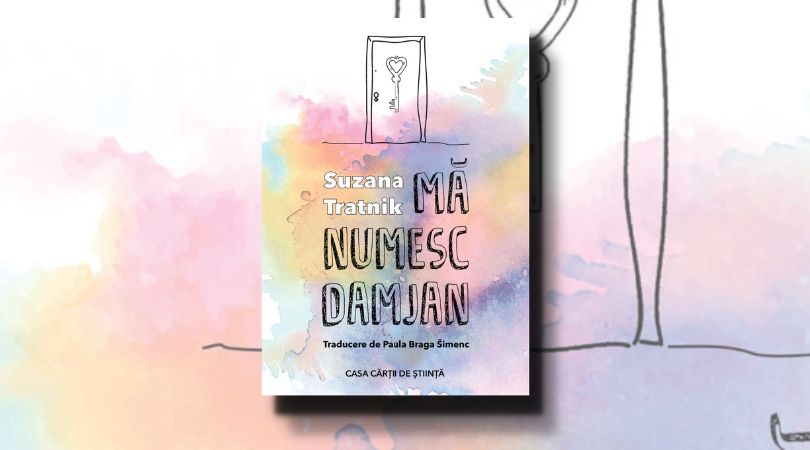
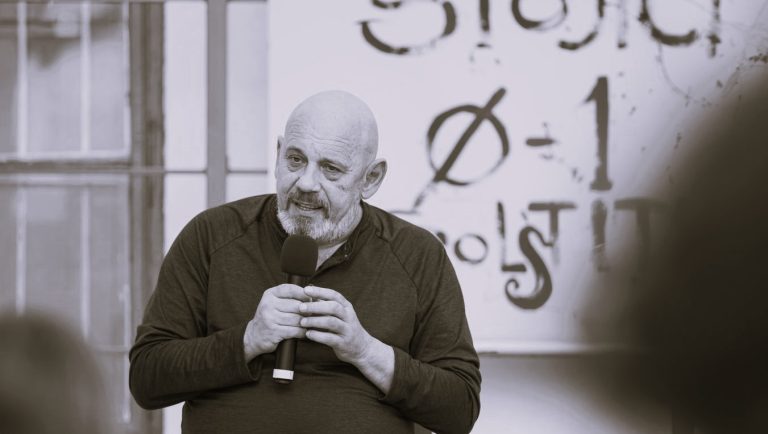
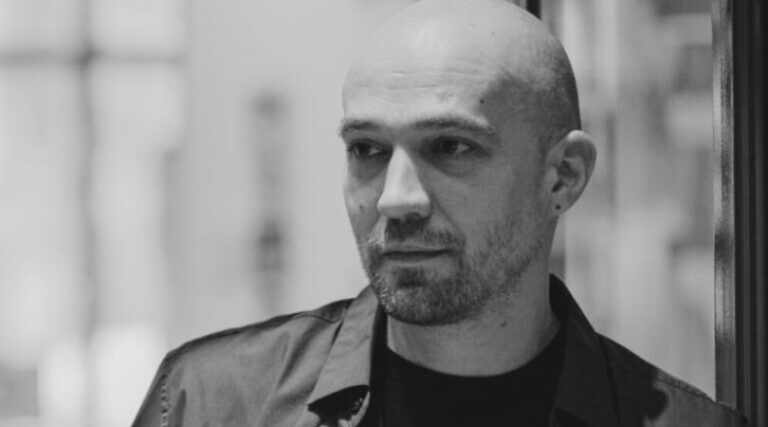
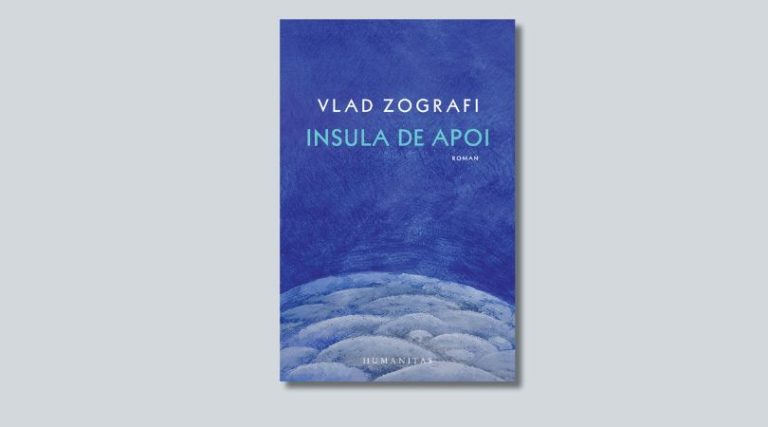
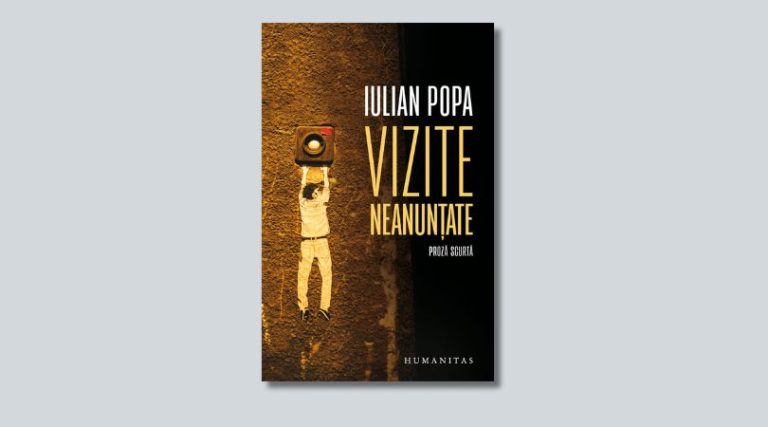


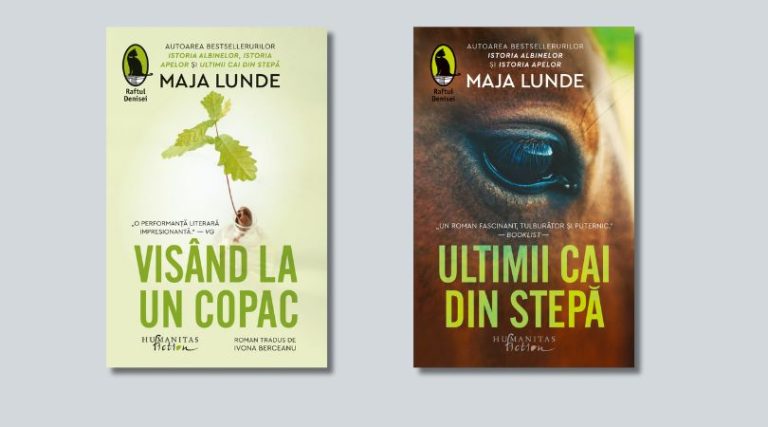






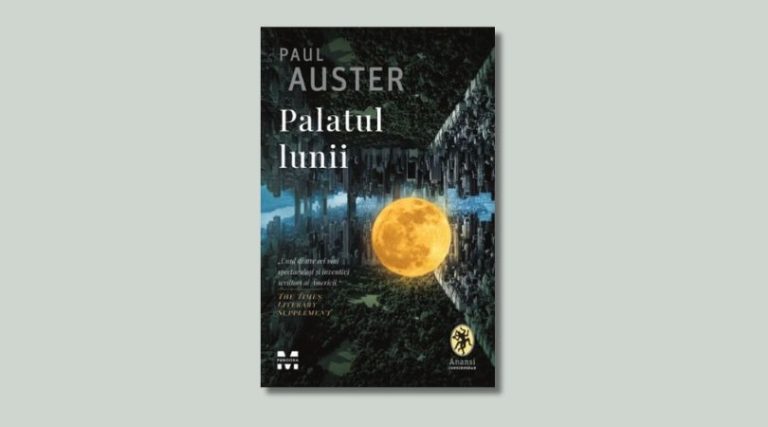



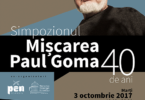





Scrie un comentariu